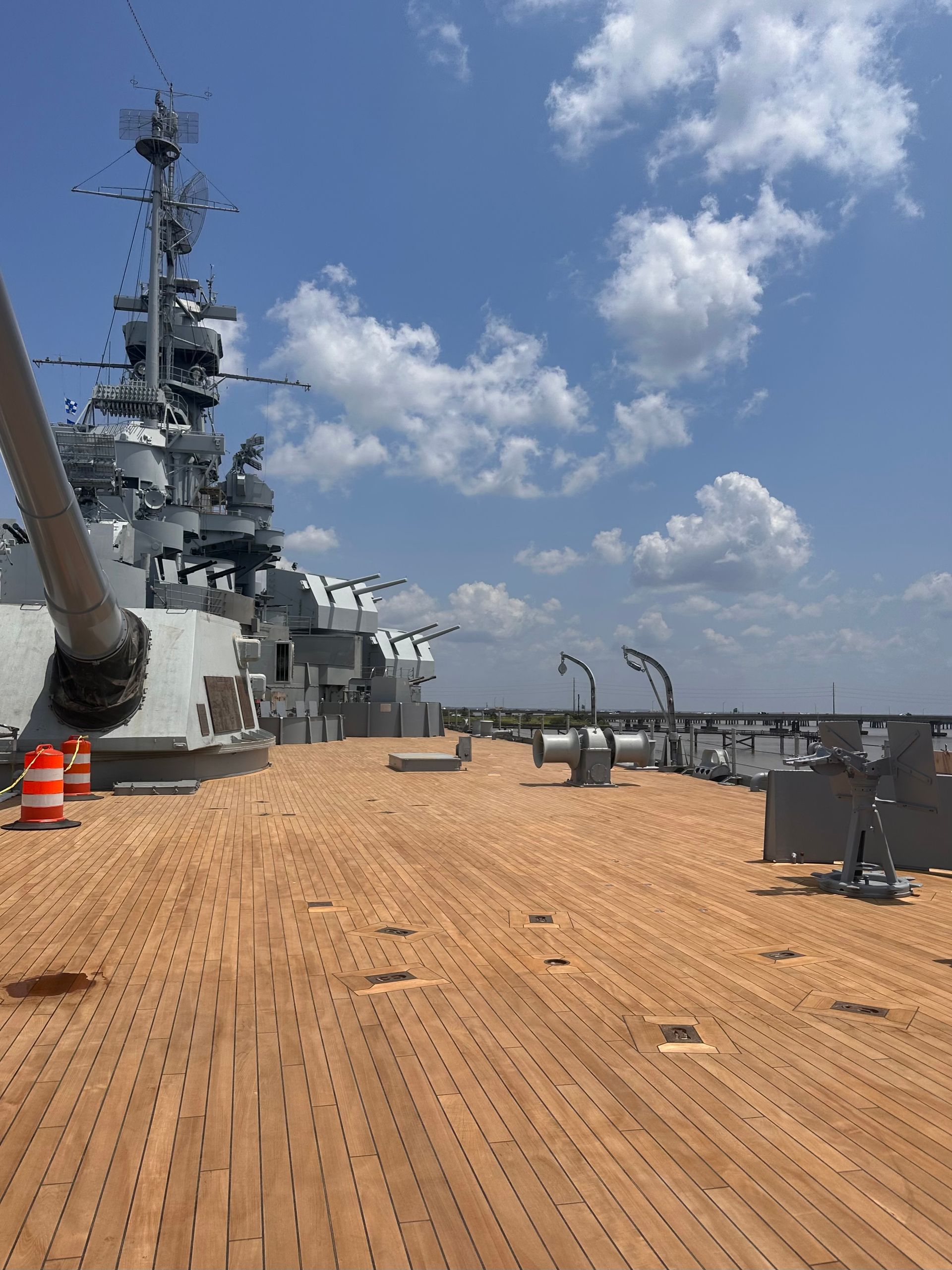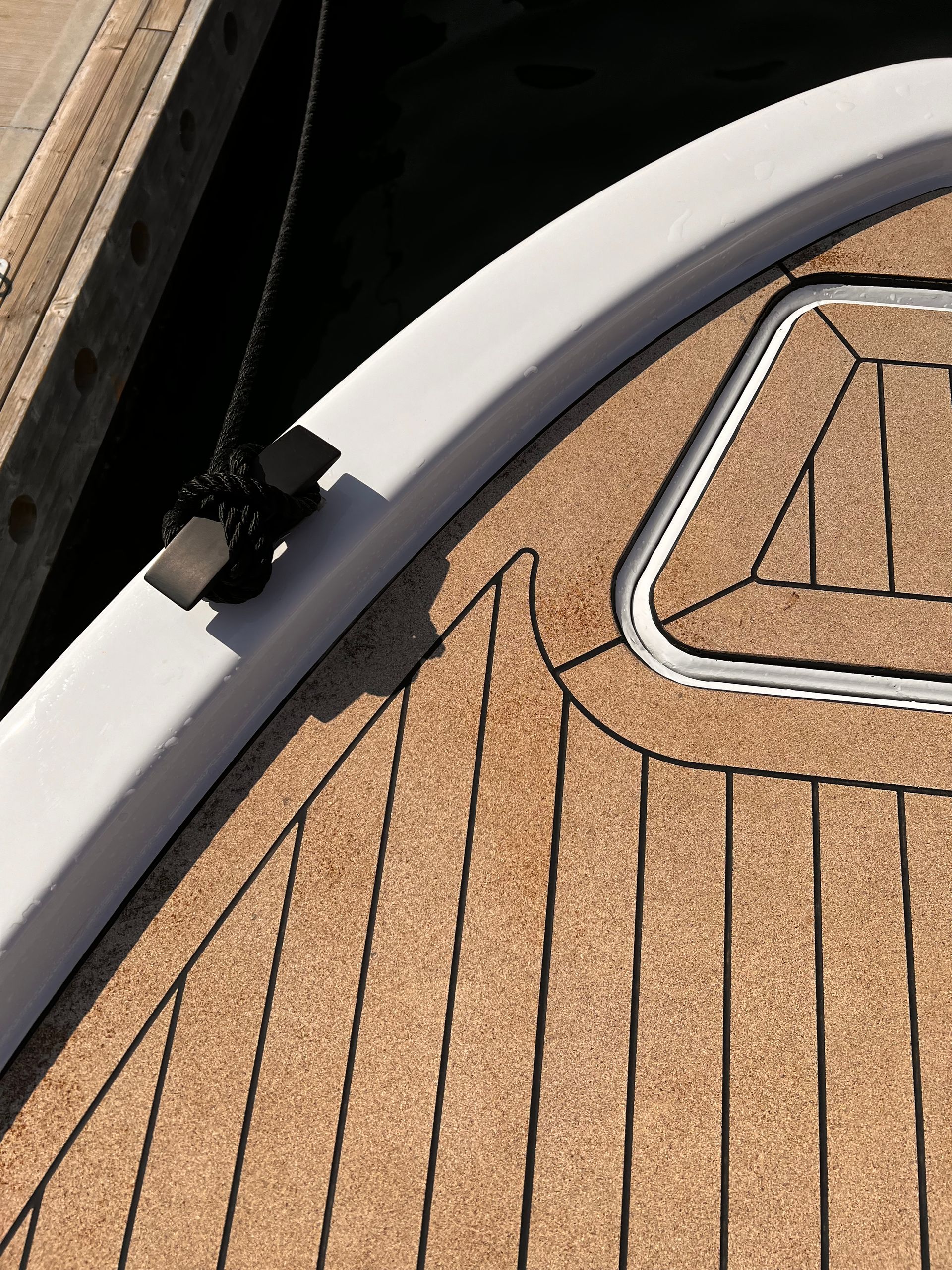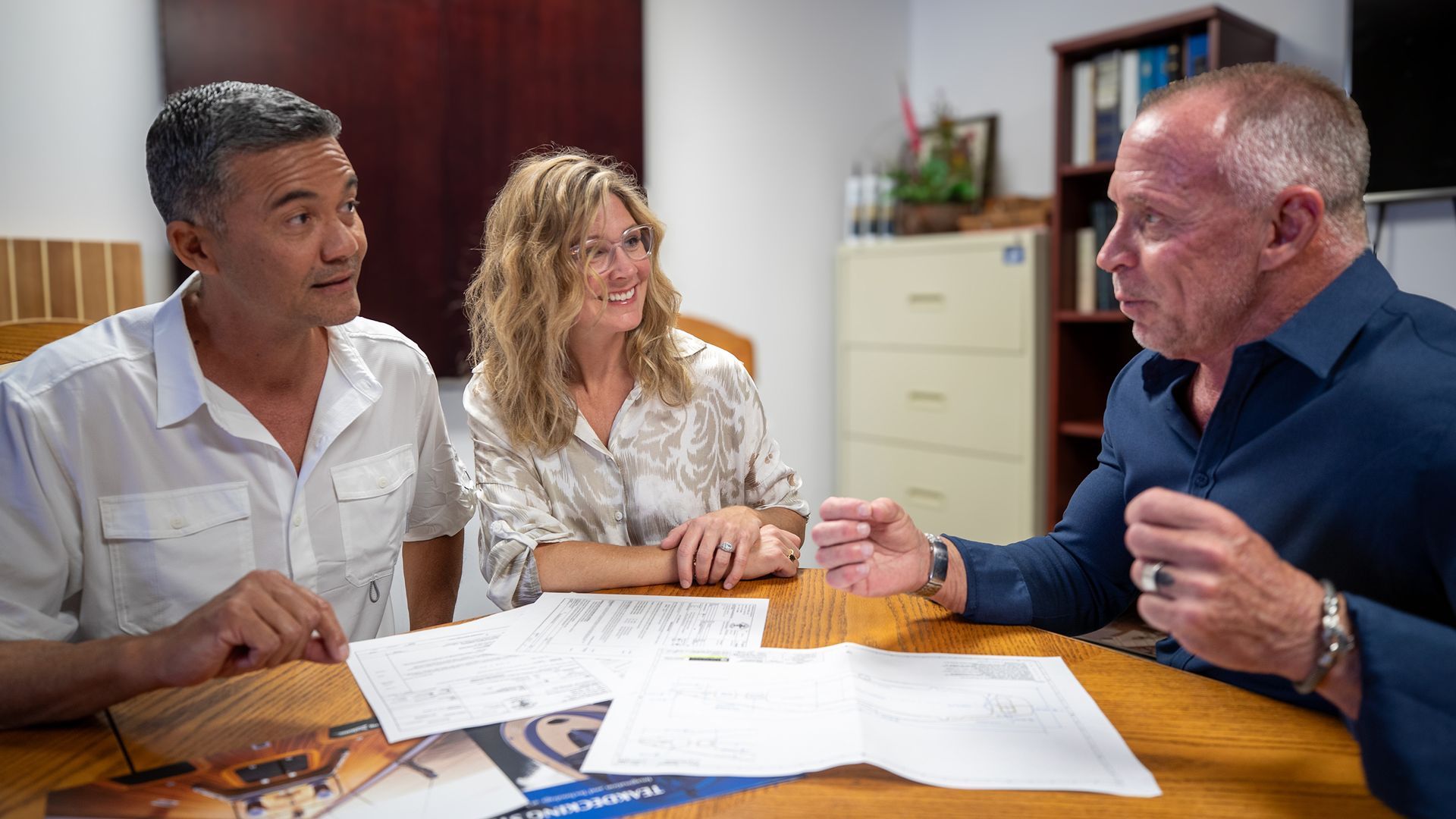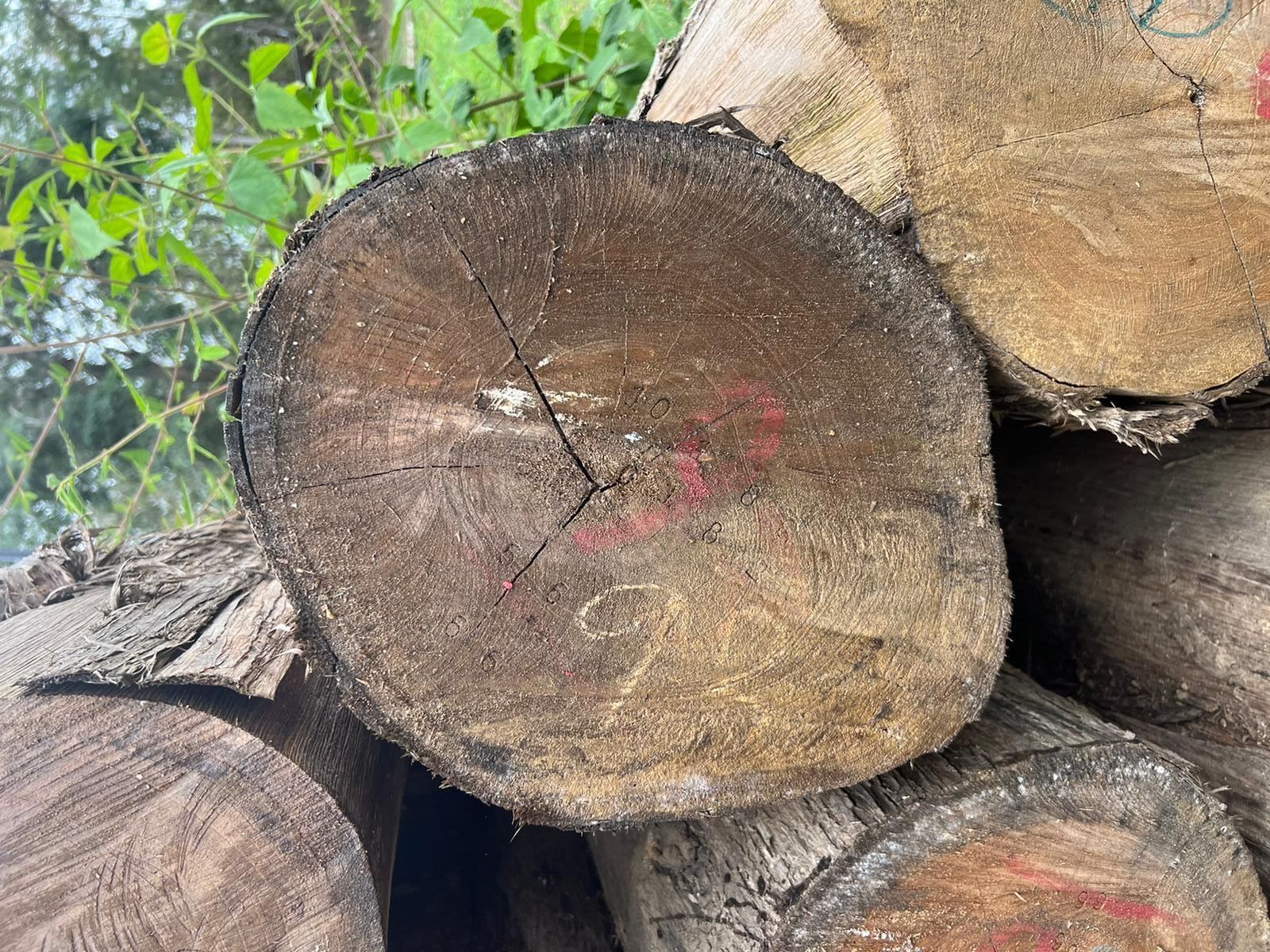February 20, 2025
The yachting community has long held the belief that viable teak must come from very old, natural forests, with much of the industry still adhering to the notion that teak must be 100 years old. Despite the environmental and humanitarian controversy surrounding teak, many owners worldwide continue to request it. This guide explores the different wood materials currently available , helping industry stakeholders and owners to make informed decisions about the best option for their deck . The information is divided into two sections titled "Wood we work with" and "Wood we do not work with." It is intended solely for educational purposes, providing detailed information on the characteristics, merits and concerns of each type. As a leading deck builder and installer, TDS remains completely impartial with no vested interest in any of the products discussed in this guide. MYANMAR TEAK The importation of Myanmar teak into Europe has been illegal since 2013 under the European Union Timber Regulation (EUTR), which aims to prevent the sale of illegally harvested timber. In 2021, additional sanctions were introduced that further restricted its availability, extending the ban to the USA as part of broader efforts to curb deforestation and human rights violations linked to the Myanmar timber trade. That same year, the Council of the European Union imposed targeted sanctions on Myanmar’s military regime, specifically restricting its ability to export timber that serve as key revenue sources for the junta. Despite these restrictions, Myanmar teak continues to be traded in countries that do not enforce such sanctions, including India, China, the UAE, Turkey, and Australia. Note, these restrictions may change at anytime. WOOD WE WORK WITH PLANTATION TEAK Characteristics Less dense than old-growth, natural teak. Younger trees aged between 30-50 years. Is resistant to insects and rot. Merits Despite the shorter and narrower planks, we can still get 20mm thickness and planks up to 2.2m. By using scarf joints or finger joints we can create 4m battens that are glued together. Shorter planks also reduce the purchase price. A guarantee that the forest is managed in an environmentally responsible and sustainable manner, including practices such as replanting trees, protecting biodiversity, and minimizing environmental impact. Verifies that the teak is sourced from legal and well-managed forests, reducing the risk of illegal logging, and complying with international law. The teak undergoes rigorous quality control measures, ensuring it meets certain standards for durability, strength, and appearance. Social Responsibility is at the heart of the activity, including fair labor practices and community engagement, supporting local communities, and ensuring workers' rights are respected. Plantations are managed with long-term sustainability in mind, ensuring a reliable and consistent supply of teak. Well-managed plantations, act as carbon sinks, helping to mitigate climate change by absorbing and storing carbon dioxide from the atmosphere. If properly maintained a deck will last 15-20 years. Concerns Some plantation teak is harvested too early for quality yacht decking. Less growth rings, resulting in lower grain quality. Less density that can give rise to warping and bowing. Pin knots are a consequence from pruning lower branches. Plantation managers, governments are reluctant to direct resources towards certification schemes. Where to source it? India, Indonesia, Tanzania, Benin, Brazil, Thailand, Sri Lanka, Costa Rica, Trinidad Note: there are other countries with younger 15-20 year teak. CERTIFIED GREEN TEAK Characteristics Uses parts of 30-40 year-old trees that would normally be rejected due to knots and imperfections. Sliced into thin veneers and glued together, to form a modified material with superior strength. Lengths up to 4m and allows large widths due to laminations Aesthetically attractive, with a plank like finish. Excellent durability as the laminating process enhances its stability and dimensional integrity. Is resistant to insects and rot. Merits The veneers are similar to the vertical grain of natural teak. Yield about 85% of the log vs 2-15% of log for Vertical Grain Renowned for its hardness, strength, and durability. A test panel currently on a yacht, had a 10kg scaffolding pole dropped onto it, causing only a 2mm dent. Limited susceptibility to cracking and warping, when cut and dried correctly. Non-skid surfaces. Extra insulation in hot and cold climates. A well-maintained deck should last 15-20 years. Concerns It may have variations in color and texture due to differences in the wood grain and moisture content of individual layers. Ensuring the quality and integrity of the bonding process is crucial, as poorly bonded laminations can lead to delamination, weakness, and structural issues over time. While lamination can improve the stability of green teak, the overall durability and longevity of green laminated teak may still be inferior to properly seasoned teak. It still requires careful moisture management to prevent swelling, shrinkage, or damage over time, especially in environments with fluctuating humidity levels. In some cases, the adhesives used in the lamination process contain chemicals. Where to source it? Thailand THERMALLY MODIFIED WOODS ACCOYA Characteristics Certified sustainable fast-growing softwood “Radiata Pine” is its base material. The wood is acetylated using acetic anhydride and water. It makes the wood virtually unable to absorb water, expand and rot. Merits Extremely durable, they guarantee it will last 50 years for use above ground and 25 years for use below ground. The wood can be reused, recycled, or burned as biomass (fuel). A great option for certain vessels such as catamarans. Very low maintenance. Concerns The color is different to what the industry “expects”. Its not as hard as teak, as it still has a lot of softwood. Where to source it? The Radiata Pine is harvested in New Zealand and shipped to the Netherlands for the modification process. TMT MARINE LIGHT Characteristics Significantly cooler than teak. Much lighter than teak. Similar abrasion resistance as natural teak. Merits Very dimensionally stable. Resistant to shrinking and swelling due to humidity, temperature, and moisture content. Resistant to decay and insects. Large logs that produce long, wide boards with tight, vertical grain. Can be used for interior applications, accepts stains and finishes. Fast-growing, sustainable species. Durable, slip resistant surface that is excellent for marine conditions. Concerns Much lighter in color, almost white before weathering. Soft wood that needs to be carefully sanded to remove scratch marks. Limited availability. Prone to splitting, chipping, and splintering requiring high quality tools and sharp blades when working. Where to source it? Western United States and Canada. WOOD WE DON'T WORK WITH THERMALLY MODIFIED WOODS AMERICAN HARD MAPLE Characteristics Specifically created for the marine industry Thermally modified by a controlled pyrolysis process of the wood being heated to (> 180 °C) in an oxygen free atmosphere. This process changes to the chemical structures of wood's cell wall components; lignin, cellulose and hemicellulose which increases its durability. Merits No chemicals are used during the modification process. It looks like teak. It weathers to grey in the same way as teak. Claims a zero-carbon footprint. Concerns Cracking. The color of thermally modified maple can vary depending on the specific treatment process and wood source, which may affect its suitability for certain design schemes. Where to source it? USA. TESUMO Characteristics Fast-growing African tree that matures in 50 years. Sourced from certified managed forests. Modified using heat, resin infusion and drying. Merits Developed as part of a research project conducted by Lürssen Shipyard and the German University of Göttingen.Can be disposed of by burning. Tested for years on land and at sea. Similar appearance, dimensional stability and rot resistance as teak. Concerns Limited amounts available. Where to source it? Germany. IROKO Characteristics African hardwood native to West Africa. Is resistant to rot and termites. Long, wide boards. Merits Similar color to teak. Economically priced. Concerns Extremely hard wood to work with: produces an enormous amount of fume and dust, prone to splintering and blunts work tools. Susceptible to cracking. Requires a lot of maintenance. A deck will last 5-6 years. Where to source it? West Africa. LEGAL DISCLAIMER This document is for informational purposes only and does not constitute professional, legal, or environmental advice. The information provided herein is based on publicly available industry knowledge at the time of publication and is subject to change due to evolving regulations, market conditions, and environmental considerations. TDS does not endorse, recommend, or assume responsibility for the sourcing, legality, sustainability, or quality of any wood materials mentioned in this guide. This guide is provided solely for educational purposes, with no commercial interest in promoting or favoring any specific wood type, supplier, or industry practice. The inclusion or omission of any material does not imply endorsement or disapproval of any specific supplier, manufacturer, or distributor. All information is presented without any warranty, express or implied, regarding accuracy, reliability, or completeness. TDS expressly disclaims any liability for direct, indirect, incidental, or consequential damages arising from reliance on the content of this guide. Readers are encouraged to conduct independent research, consult industry professionals, and verify compliance with applicable laws and regulations before making any decisions related to wood procurement or usage. By using this guide, readers acknowledge and agree that TDS is not responsible for any business decisions, financial outcomes, or disputes between suppliers, manufacturers, or buyers. Any reference to specific wood sources or countries is purely informational and does not imply any partnership, business relationship, or endorsement.
